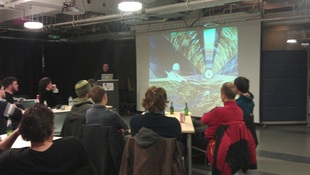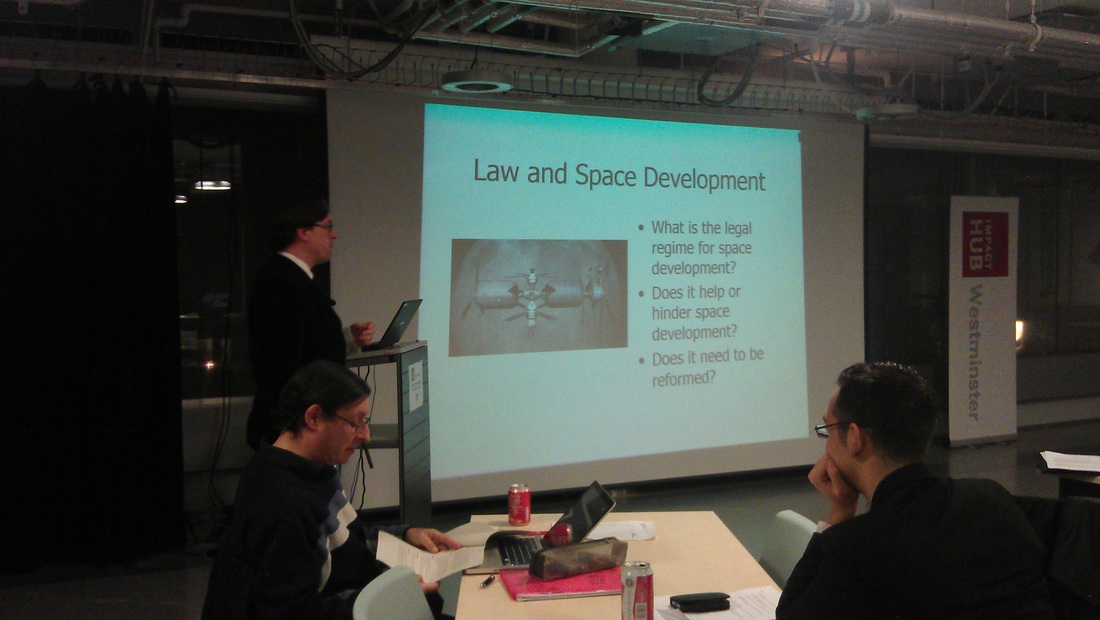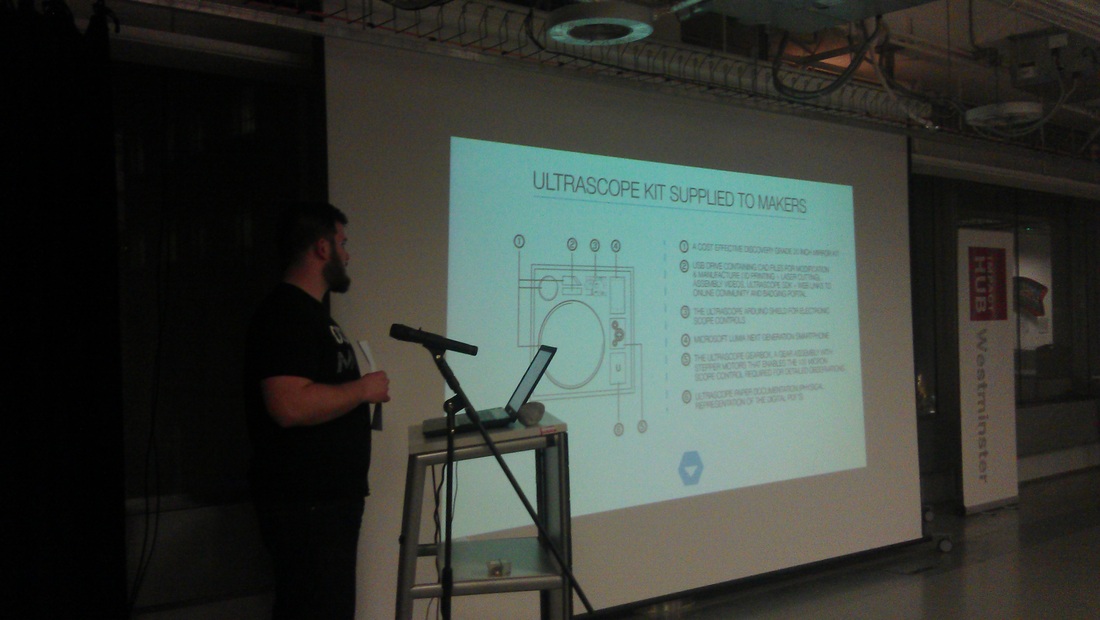|
Our flagship get-together, Space Town Hall, made a return after the launch! Thanks to the number of citizens who has been showing their support by their presence, sponsorship and volunteering effort, crew. We say this every time, this time too, this event has been successful because of your support. Thank you. Space is a really wide topic, once again we covered everything from the engineering work on Earth's surface to the concepts of law and colony in the galaxy, from redeveloping heritage space colony studies to 3D printing telescope for a gamified astronomy vision. All with actions to follow and sign ups, as usual. We kicked off the evening with space colony research at the BIS (The SPACE project), lead by Jerry Stone FBIS, who is also a presenter on astronomy and space exploration since 45 years ago whilst still at school!
There's so much research done by the BIS team, in 30 minutes, Jerry has summarised the study thus far and presented several colony design with latest feasibility analysis and a modern updates to these designs based on these studies, with a great level of technical details too. Bringing space colonies "from imagination to reality", true to BIS's tag line. That lead us nicely into the topic of Space Law! "Space law is of crucial importance because as well as the constraints of physics and engineering, any activities in space are always going to be governed by the law. Space development isn't going to take place in a wild, chaotic place without legal rules! " - Adam Manning Policies has always been like a maze, a maze as vast as space, we feel. As citizen of Earth and of the wider Space, knowing our rights, or lack of, is surely essential but few of us would want to read through the original text of the law, the statutes or treaties themselves. Adam Manning, our speaker of the law, has taught himself space law and has been sharing his learning and research to the BIS Space Colony project and the wider audience in the open internet at his blog @ProjIon. In this event, we were given a digested understanding of Outer Space Treaty and Moon Treaty (also known as Agreement Governing the Activities of States on the Moon and Other Celestial Bodies), working things out from the ground up - from the Common Laws. Feeling like following up from the presentation? Here is a more detailed examination of the law of Outer Space from the context of private and commercial space development from Adam. After working things out at space, Jon Rushton from Open Space Agency brought us back looking up to Space from Earth's surface and talked us through the design and development of Ultrascope - a kit-set telescope that would reduce the cost of pro-level astronomy by an order of magnitude, provides the maker/astronomy community with a solid starting point to build and adapt a telescope. The design of Ultrascope focused on rapid manufacture technologies such as 3D printing and laser cutting to bridge the skill gap required for machining high tolerance components. The main goal of this project is to increase the number of astronomers. Open Space Agency believes that with the development of technology and the open source movement we will eventually be able to reduce the barrier to entry for owning a telescope powerful enough for performing follow up observations on asteroids. So, beta testing sign up is on - happy start gazing! The presentation is available here: http://prezi.com/8hvfyy67allh/?utm_campaign=share&utm_medium=copy&rc=ex0share. With that, we moved over to a quick summary from Stephanie Pau @citizeninventor on our co-learning on DIY Orientation Thruster and follow up space discussions with some more inspiration from more beers - thanks to International Space University for it's generous sponsorship and Hub Westminster for keeping its door open to us till late! We had people from space and non space related industry, professionals and students, policy, research, business, technical and creative expertise in one room. It was a truly multi-disciplinary mix of people and we are very pleased to see the great mix of people in the room. It has been a special evening to have Fabian joining us from BBC world service technology programme on the evening. Are you a space journalist/science communicator? Can you record our events? We're on the look out for crew! Drop us a line: If you are ready to take the next one on,
0 Comments
The first 2 speakers of the Space Town Hall #2 (unveiled in earlier posts here and here) definitely has the galatic impact on their focus! Our third speaker will bring us back to Earth and take is through building telesope using 3D printing etc, the rapid designer-prototyper: Jon Rushton.
Jon Rushton is a Brunel Industrial design graduate. Project Ultrascope is Jon's handy work! The main goal of this project is to increase the number of astronomers by the development of open source technology, reducing the barrier to entry for owning a telescope powerful enough for performing follow up observations on asteroids. "The scope we are building at the moment is not at this level (yet) but we are making progress on reducing the barrier to entry by releasing the free plans and instructions to download and build an ultrascope in the near future. The manufacture methods also reduce the skill required by the maker as it uses ever developing rapid manufacture techniques such as 3D printing and laser cutting for the bulk of the components (as well as bought in components). We believe that the unique points of interest for this project are the freedom to customise and improve on the design, access to an open community of maker astronomers (of which there is already a budding number) from a great starting point and its strong cross subject (science and Design & Technology) in school project applications. The project so far has been a great success and we have 1,600 sign ups in the wings to build the scope when it is released." Want to hear more or have a burning question to ask? RSVP now and join us on Space Town Hall #2, 10 Feb evening at Hub Westminister. |
Categories
All
|



